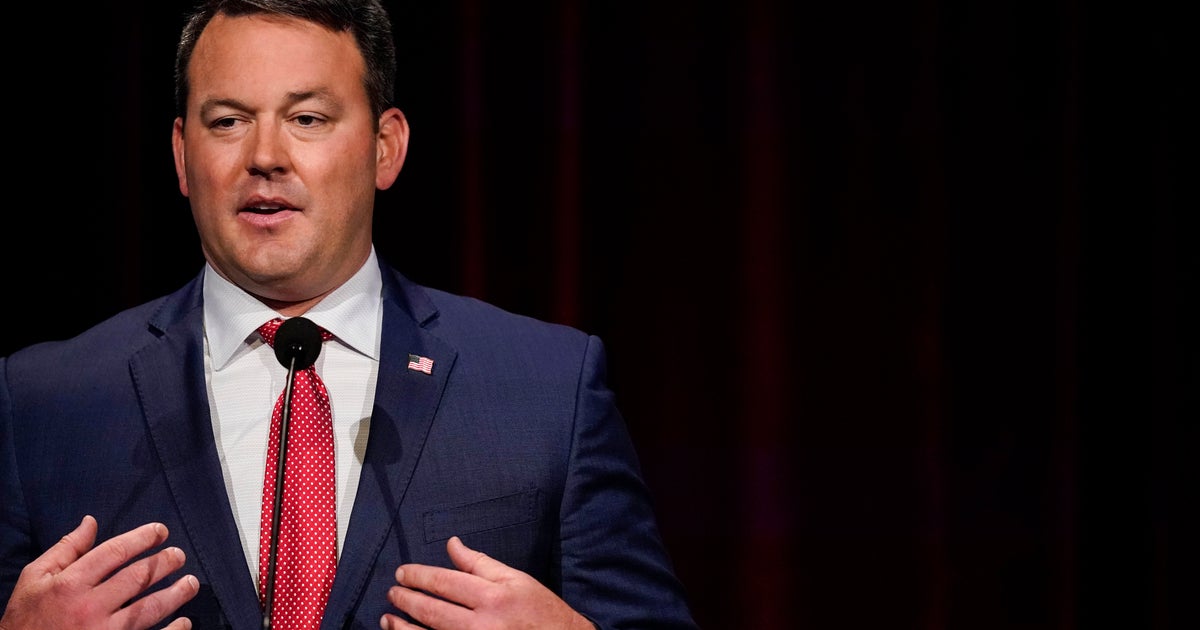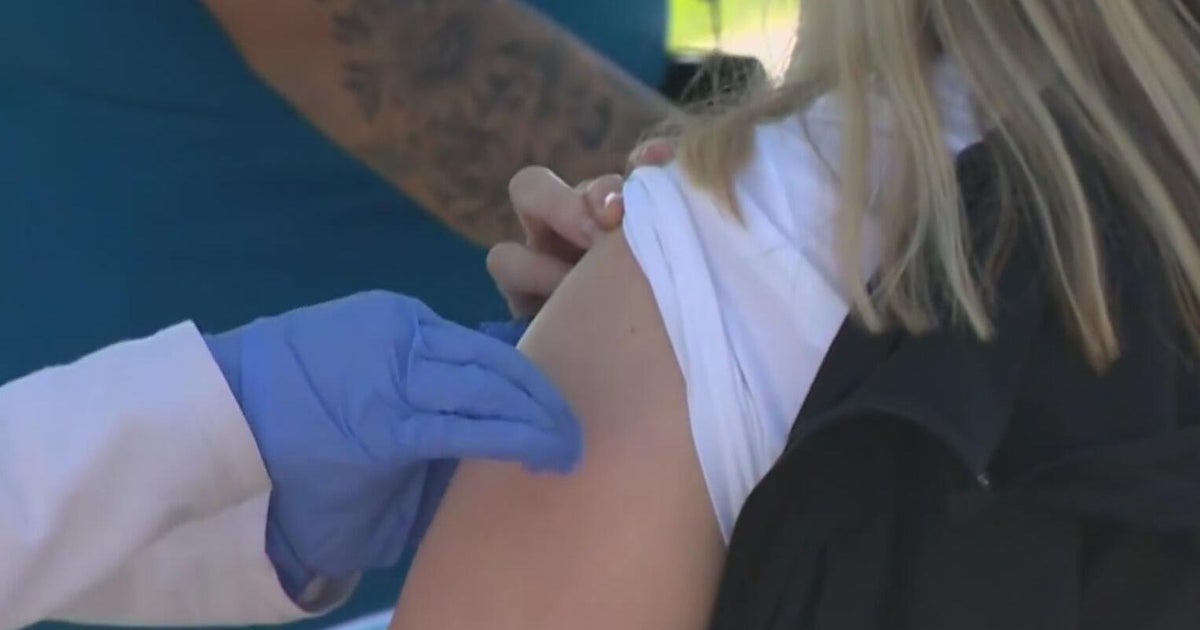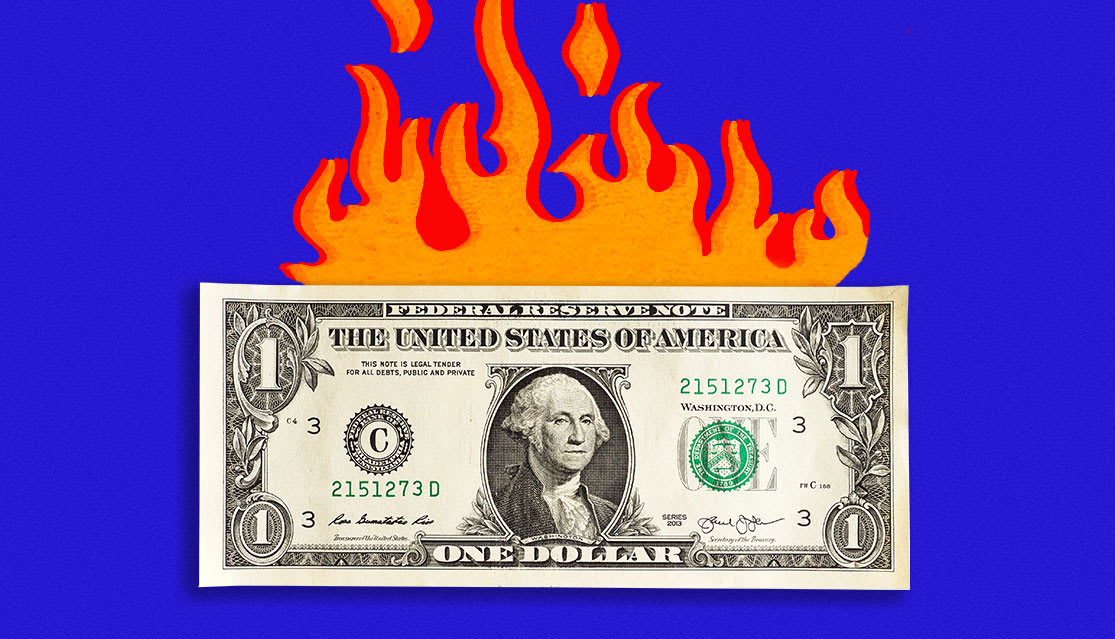Bipartisan group of senators unveil COVID-19 relief bills
Washington — A bipartisan coalition of senators unveiled Monday the legislative text for a pair of coronavirus relief bills that aim to provide economic aid to American workers and small businesses that have been crippled by the ongoing pandemic.
Senator Joe Manchin, a moderate Democrat from West Virginia, placed two thick stacks of paper on the podium as he announced a comprehensive $748 billion measure, and an additional $160 billion for state and local funding.
"Bipartisanship and compromise is alive and well in Washington, contrary to what you've been hearing. We've proven that," said Manchin, who was surrounded by a group of his colleagues. Republican Senator Susan Collins called it a "Christmas miracle," saying lawmakers had worked during the Thanksgiving holiday to create this bill.
Collins said she hoped House and Senate leadership, as well as the White House, would "take our products and use them as the basis for a COVID relief package that is urgently needed."
Collins also said she would support the $160 billion bill. As Republicans have a thin majority in the Senate, her support for the second bill could be critical to ensuring it would actually pass in the Senate.
"I just want to go on record as being for both of these bills," Collins said.
The legislation is the culmination of weeks of bipartisan and bicameral negotiations over another emergency relief measure and comes just before a slew of crucial pandemic-related programs are set to expire at the end of the year. Earlier this month, the group unveiled a framework for their $908 billion plan, which is now being split into two bills. The proposal did not include another round of direct payments to Americans.
The $748 billion measure is expected to include additional funding for the popular Paycheck Protection Program, schools and unemployment insurance, as well as more money for vaccine development and distribution, coronavirus testing and contact tracing. Both Republicans and Democrats agree on these measures.
The second bill, however, would address two issues that have been sticking points between Republicans and Democrats in negotiations over a relief package: $160 billion for state and local governments, a priority for Democrats, and a liability shield for businesses, key to Republicans. Republicans oppose the former, while Democrats think the liability shield could hurt workers.
GOP Senator Mitt Romney noted that Republicans opposed funding for state and local governments because of the wide variance in level of need between states. He described the liability shield provision as an exchange for a measure on state and local aid, and said both Republicans and Democrats had worked hard to reach that deal.
Republican Senator Bill Cassidy said $8 billion of the $160 billion would be set aside for tribal governments, with the remainder going to states and localities with a specific distribution formula based on population. Each state would get a minimum of $500 million, and governors would have to distribute 40% of the amount received based on proportional need. Cassidy also said states would not be permitted to use these funds for pensions, "period, end of story."
Two members of the House who engaged in negotiations also spoke: GOP Congressman Tom Reed and Democratic Congressman Josh Gottheimer, the co-chairs of the bipartisan Problem Solvers Caucus. Gottheimer said that going home for the December holidays without passing an aid bill was "not an option."
"Let us get it done. Not for us, but for the people we represent, and for the people who need this as soon as possible," Reed said.
Senate Minority Leader Chuck Schumer told reporters on Monday before the group unveiled their proposal that "we'll see" if the majority of Democrats will support a bill without funding for state and local governments.
"We'll see what they put together. We believe state and local is the right thing to do," Schumer said.
Senate Majority Leader Mitch McConnell had suggested on December 8 that lawmakers set aside liability protections and aid for state and local governments and "pass those things that we can agree on," with those two issues to be addressed next year.
It's unclear whether congressional leaders will bring the bills up for consideration. McConnell's staff said last week he sees no path to an agreement on state and local funding and liability protections that would be acceptable to Republicans.
The senators involved in the effort are: Democratic Senators Joe Manchin of West Virginia, Mark Warner of Virginia, Jeanne Shaheen of New Hampshire, Maggie Hassan of New Hampshire and Dick Durbin of Illinois; Republican Senators Susan Collins of Maine, Bill Cassidy of Louisiana, Lisa Murkowski of Alaska, Mitt Romney of Utah and Rob Portman of Ohio; and Independent Senator Angus King of Maine.
Lawmakers have for months been divided over the size and scope of a coronavirus relief package, though the timeline for them to act is quickly shortening. Several programs that aimed to help Americans struggling financially because of the pandemic, including the unemployment assistance program, nationwide eviction moratorium and federal student loan freeze, will expire at the end of the year.
Congressional leaders have said it is urgent for lawmakers to send another relief package to President Trump's desk before they return to their districts for the holiday.
"If we don't come to agreement we should stay in the Capitol through Christmas and New Year's because people are suffering," Schumer said Sunday. "Congress should not go home until we have an agreement."
Lawmakers must also agree to a deal to create a massive government spending bill before December 18, when funding expires. Congressional leaders have said they would be interested in attaching a coronavirus relief bill to an omnibus funding package.



